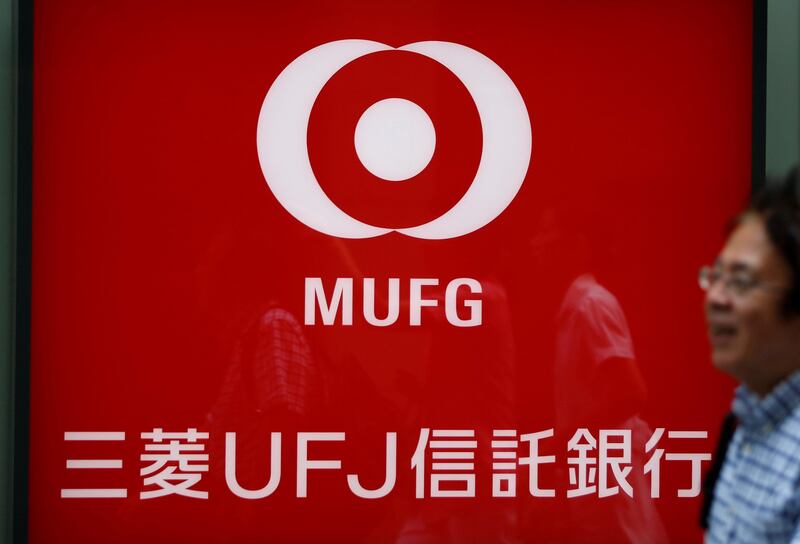Mitsubishi UFJ Financial Group is looking to hire in Saudi Arabia as the lender seeks to benefit from privatisations valued at more than US$350 billion over the next five years.
“We are planning to start expansion in Saudi Arabia by hiring 20 people,” said Elyas Algaseer, the bank’s co-head in the Middle East and North Africa.
“That will go up to 60 in three to five years in line with our expectations of the growth in business.”
MUFG, as the bank is known, is set to become the first Japanese lender to start full banking operations in the world’s biggest oil exporter after obtaining approval from the kingdom’s central bank. Japan’s biggest bank plans to open the branch in Riyadh as early as next year, Mr Algaseer said.
Japanese banks are seeking opportunities in Saudi Arabia as the country pursues a plan to reduce dependence on oil and diversify its economy through public-sector restructuring and infrastructure investment. MUFG may help underwrite Aramco's planned share sale in 2018 as it holds a stake in Morgan Stanley, which was selected as lead underwriter with JP Morgan, the Nikkei newspaper reported in February.
The sale could raise as much as $100bn in what would be the world’s largest initial public offering.
_______________
Read more:
Saudi Arabia's economy likely to dip this year, says Institute of International Finance
HKex chief says key to winning Saudi Aramco is primary connect
Japanese start-ups generate innovation
_______________
“Saudi privatisation will play the main game in the region and reshape the kingdom’s economy,” Mr Algaseer said, adding that privatizations in the country could exceed $350bn in about five years. “These of course have large financing potential and financial institutions such as ourselves will be positioning to ensure that we are part of this transition process.”
MUFG, which currently manages its Saudi business from Dubai, was one of the lead arrangers on a $10bn syndicated loan deal with the kingdom’s government last year. The bank also helped Saudi Arabia raise $17.5bn in the biggest-ever bond sale from an emerging-market nation last October.
Still, a Saudi-led standoff against Qatar “has slowed the growth and diversification momentum since June”, Mr Algaseer said.
“The geopolitical issues will continue to restrict the diversification efforts in the region in the short term. It is very important currently that the regional political situation gets clarified.”
Mr Algaseer hopes that deals like Adnoc, which is said to be considering raising as much as $7bn from the debt markets, could “open the gate for other transactions”.
“Before the end of the year, we could see many deals,” he said. “We expect big deals to go through with many government, state-owned firms announcing and implementing privatisation, M&A, structured financing and debt-financing deals.”






